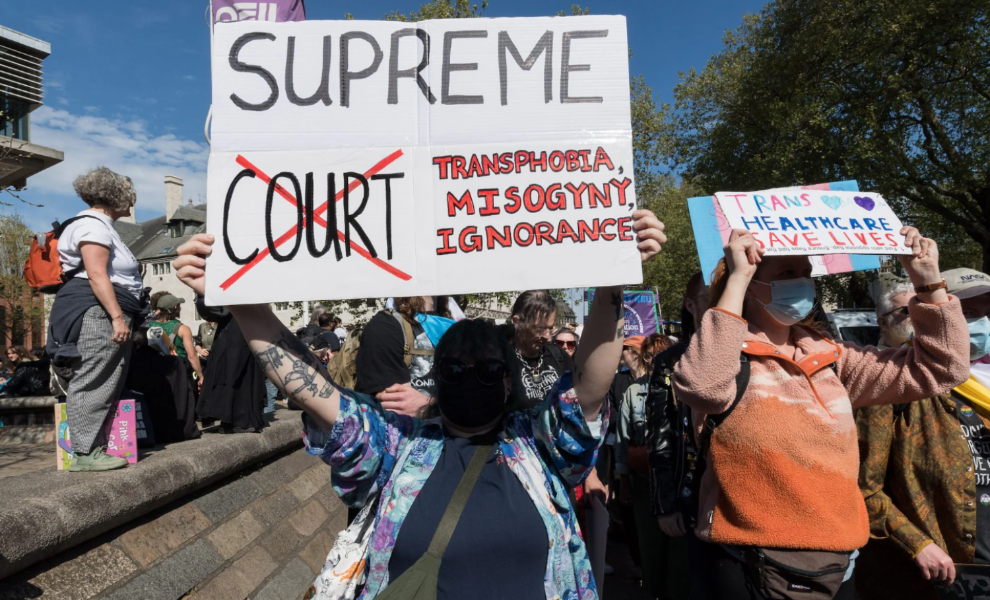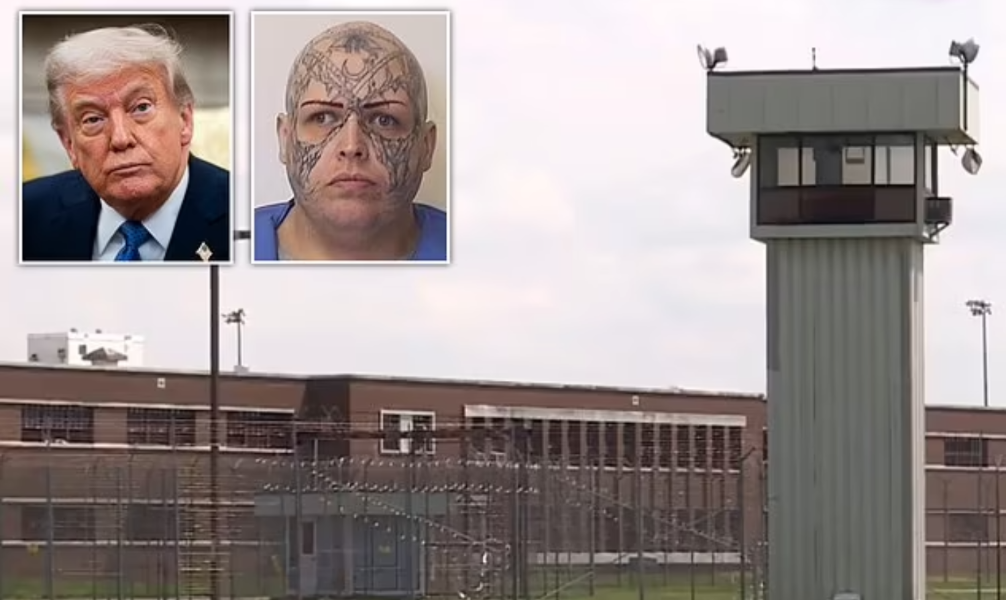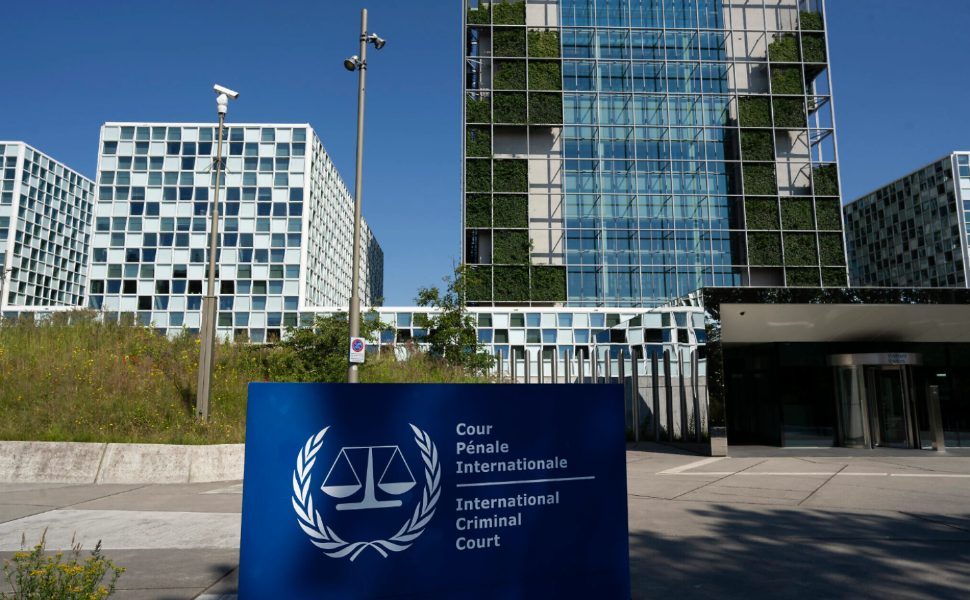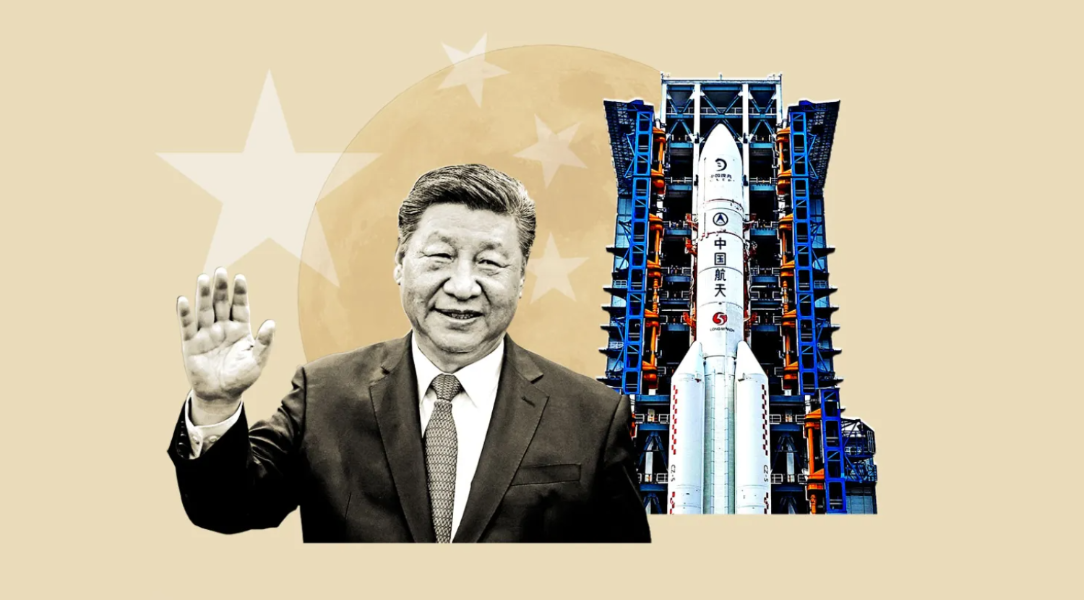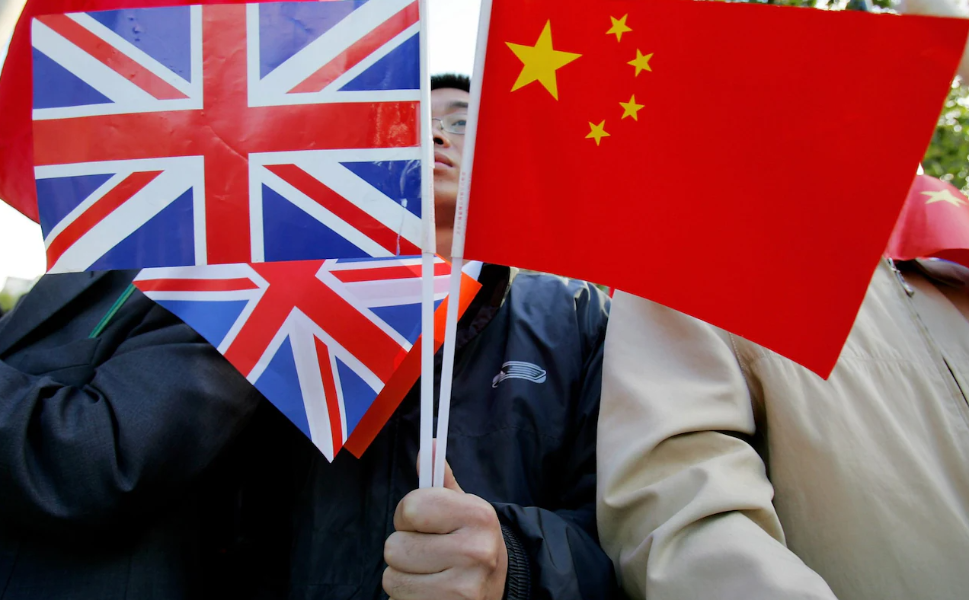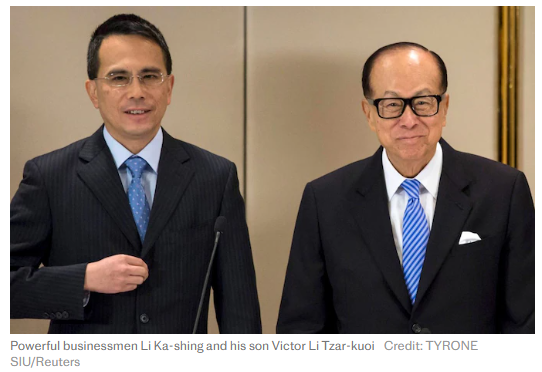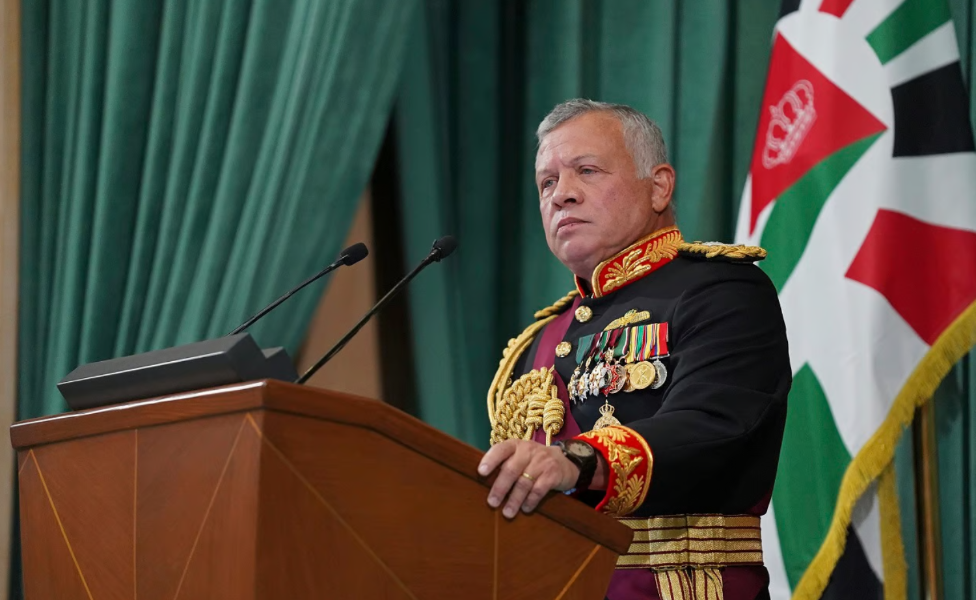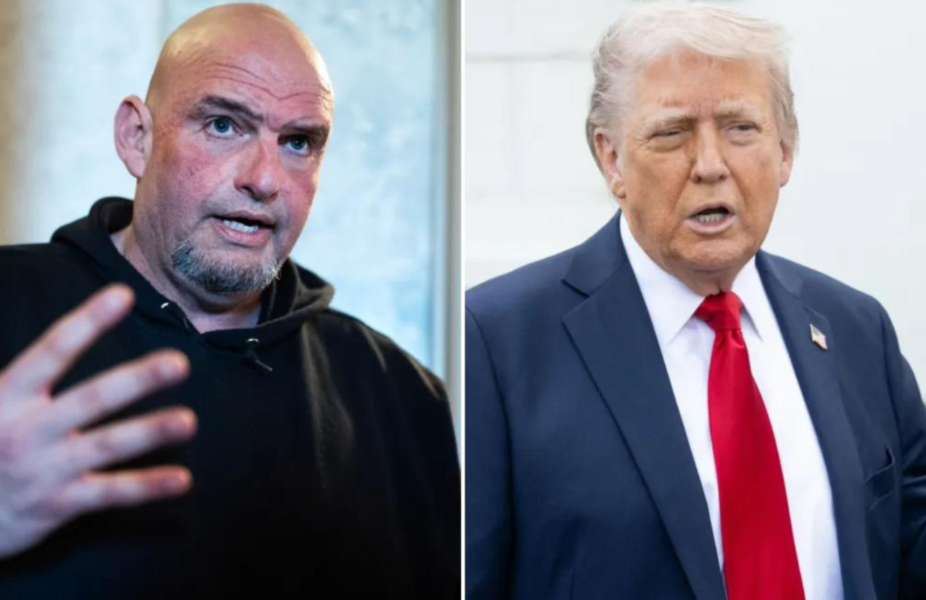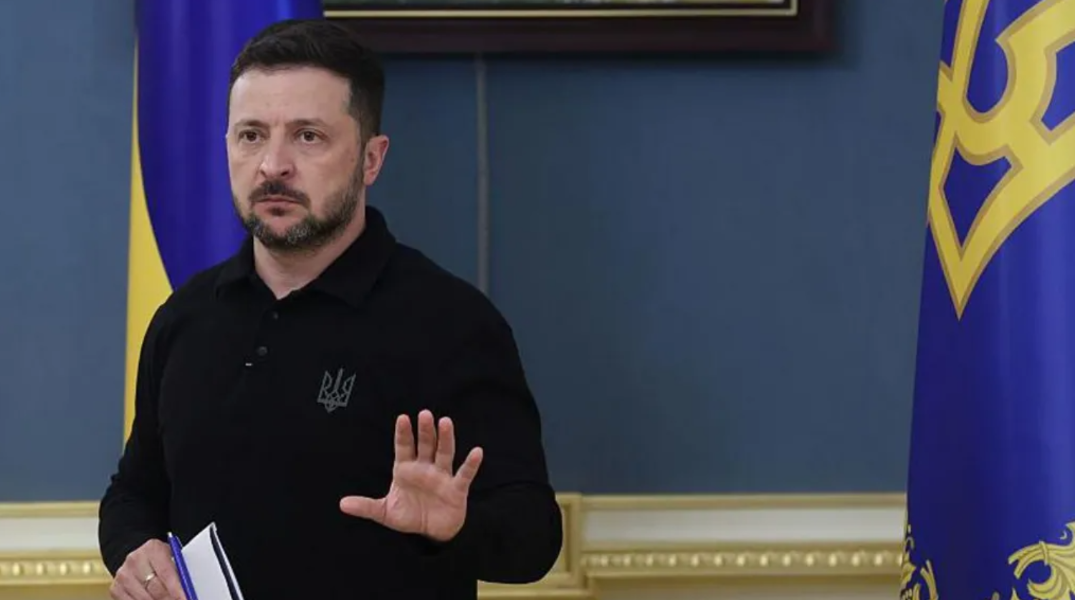-
Posts
9,982 -
Joined
-
Last visited
Content Type
Events
Forums
Downloads
Quizzes
Gallery
Blogs
Everything posted by Social Media
-
Moderna at Risk of Suspension After Regulatory Breaches Over Covid Vaccine Trials Moderna is facing the possibility of suspension from Britain’s leading pharmaceutical trade group following multiple serious breaches of regulatory standards. The Covid-19 vaccine manufacturer is scheduled for an audit by the Prescription Medicines Code of Practice Authority (PMCPA) after its conduct was found to be "unacceptable" and damaging to the industry's reputation. Should the audit reveal that Moderna lacks adequate compliance systems, the company could be suspended or even expelled from the Association of the British Pharmaceutical Industry (ABPI), a move that would mark a significant setback for the firm, which only joined the association in 2023. The potential penalties stem from a series of troubling incidents, including revelations that company representatives offered financial incentives to children to participate in Covid vaccine trials. Children were reportedly promised £1,500 and teddy bears to encourage their participation — a direct violation of the Medicines for Human Use (Clinical Trials) regulations, which strictly forbid offering financial inducements to children or their guardians. In a new ruling expected to be published imminently, it has also been determined that Moderna misled regulators about when it first became aware of the incentives. The company claimed it only learned of the situation in January 2024 following notification by the Health Research Authority. However, it has now emerged that senior executives had been alerted by the campaign group UsForThem in August 2023, but failed to act. The PMCPA criticized Moderna’s actions, describing the company’s lack of transparency as "completely unacceptable" and stating it had brought "discredit upon the industry." The investigation also uncovered that a senior Moderna employee co-authored three articles — including one with former vaccines minister Nadhim Zahawi — promoting Moderna’s Covid vaccine without disclosing their employment with the company. Additionally, promotional tweets were posted from a personal account without any mention of the individual's ties to Moderna, a failure the PMCPA said constituted inappropriate advertising. Molly Kingsley, founder of UsForThem, condemned Moderna’s behavior, stating: "Many of the previous judgments against Moderna have revealed how readily it put profit ahead of the health and safety of children. Now it has also laid bare just how little regard it has had for the regulatory system that was supposed to keep it honest. Never before has a company so new to the pharmaceutical industry been rebuked in this way." In the latest findings, Moderna was cited for ten new breaches of the code, many involving three senior executives. The PMCPA has ordered an audit to assess whether the company’s culture, governance, and internal systems are functioning effectively. Following the audit, the Appeal Board will determine if further sanctions, including suspension or expulsion, are warranted. The Appeal Board’s power to suspend or expel is rarely used, having been invoked only nine times in the past four decades. The most recent case involved Novo Nordisk, suspended in 2023 over marketing practices related to its weight-loss and diabetes drugs; its membership was later restored in March. Despite being ordered to pay fines in previous cases, critics argue that the financial penalties are too small to deter a company with revenues approaching £7 billion in 2023. Esther McVey MP, a former member of the all-party parliamentary group on Covid vaccine damage, said: "There have now been six cases over the last few months where the UK Prescription Medicines Code of Practice Authority (PMCPA) have ruled against Moderna regarding multiple breaches of the industry’s Code of Practice. The news that the PMCPA is taking the highly unusual step of ordering an audit of Moderna’s culture, governance and compliance framework is reputationally damaging, but it is incredible that the regulator has no real power to impose appropriate fines or other meaningful penalties which might make pharmaceutical companies think twice before breaking the rules. They know they can get away with it, and so they do; time and time again. It’s hardly surprising that public trust in the pharmaceutical industry and its regulators is through the floor." When approached for comment, Moderna told The Telegraph it would wait for the PMCPA rulings to be officially published before responding. Adpated by ASEAN Now from The Telegraph 2025-04-27
-
Virginia Giuffre, Fierce Advocate and Epstein Survivor, Dies by Suicide at 41 Virginia Giuffre, one of the most outspoken survivors of Jeffrey Epstein’s sex trafficking network and a driving force behind efforts to hold his enablers accountable, has died by suicide at the age of 41. Her death was confirmed by her family, who said she passed away at her farm in Neergabby, Western Australia, where she had lived for several years. “It is with utterly broken hearts that we announce that Virginia passed away last night at her farm in Western Australia,” her family said in a statement to NBC News. “She lost her life to suicide, after being a lifelong victim of sexual abuse and sex trafficking.” They described her as “a fierce warrior in the fight against sexual abuse and sex trafficking,” and added, “She was the light that lifted so many survivors. In the end, the toll of abuse is so heavy that it became unbearable for Virginia to handle its weight.” Raised in Florida, Giuffre endured abuse from a young age and experienced homelessness as a teenager before being lured into Epstein’s circle by Ghislaine Maxwell. She said Maxwell groomed her for sexual exploitation, and she suffered abuse from Epstein between 1999 and 2002. Giuffre also alleged she was trafficked to several of Epstein’s powerful associates, including Prince Andrew and French modeling agent Jean-Luc Brunel. Giuffre became one of the first women to publicly accuse Epstein, demanding justice long before the full scope of his crimes came to light. Her courage inspired other victims to come forward and played a vital role in triggering multiple investigations, including the successful prosecution of Maxwell, who was convicted in 2021 on five counts related to sex trafficking. She filed a civil lawsuit against Prince Andrew in 2021, alleging he sexually abused her when she was 17. He denied the allegations but reached an out-of-court settlement the following year for an undisclosed sum. Brunel, who was later charged with rape and sexual harassment, died by suicide in a French jail in 2022. Giuffre had testified against him in a Paris courtroom in 2021. “I wanted Brunel to know that he no longer has the power over me,” she said after her testimony. “I am a grown woman now and I’ve decided to hold him accountable for what he did to me and so many others.” She moved to Australia before Epstein’s arrest in 2019 and lived there with her husband and their three children. Her brother, Danny Wilson, told NBC News that Giuffre "pushed so hard to snuff the evil out" and that despite suffering from renal failure and physical pain, it was her mental pain that was harder to bear. “Her biggest push was, ‘If I don’t do this, nobody’s going to do it,’” he said. Giuffre's voice remained powerful even as she faced immense personal challenges. In a “Dateline” NBC special aired before the arrests of Maxwell and Brunel, she implored authorities to believe survivors. “Take us serious,” she said. “We matter.” Her attorney, Sigrid McCawley, called her a “dear friend and an incredible champion for other victims,” while her representative, Dini von Mueffling, said, “Virginia was one of the most extraordinary human beings I have ever had the honor to know.” McCawley added, “Her courage pushed me to fight harder, and her strength was awe-inspiring.” Giuffre’s death marks a tragic end to a life spent fighting for justice—not only for herself, but for countless others who endured abuse. Though her own battle has ended, the legacy of her bravery continues to echo in courtrooms and survivor communities around the world. Adpated by ASEAN Now from NBC 2025-04-26
-
Tensions Between Nuclear Rivals Soar as Pakistan Warns of Possible War with India Pakistan's Defence Minister Khawaja Asif has issued a stark warning that the ongoing conflict over a deadly shooting in Kashmir could spiral into a full-scale war between Pakistan and India. In an interview with Sky News' The World with Yalda Hakim, Asif said that his country is prepared to respond decisively if provoked by New Delhi, underlining the seriousness of the crisis between the two nuclear-armed neighbours. The warning comes in the wake of a brutal shooting at a popular tourist site in Indian-administered Kashmir, which left 26 people dead. The Indian government was quick to accuse Pakistan of involvement in the attack, a charge that Asif flatly denied. He claimed the incident was staged by India itself, suggesting it was a "false flag" operation designed to provoke hostility. "We will measure our response to whatever is initiated by India. It would be a measured response," Asif told Sky News. "If there is an all-out attack or something like that, then obviously there will be an all-out war." The Defence Minister emphasized the global ramifications of the conflict, particularly given the nuclear capabilities of both countries. "Yes, I think so," he said when asked whether the world should be concerned. "The clash between two nuclear powers is always worrisome... If things get wrong, there could be a tragic outcome of this confrontation." The longstanding Kashmir dispute remains a flashpoint in South Asia. Both India and Pakistan claim the territory in its entirety but control different parts. The region has been a source of bloodshed for decades, with tens of thousands of lives lost. In recent years, relative calm had been restored, but the latest incident has shattered that fragile peace. Indian Prime Minister Narendra Modi responded to the attack with a vow to pursue the perpetrators "to the ends of the Earth," a pledge that has further fueled tensions. However, Asif insisted that India was behind the incident. "Yeah, yeah, yeah. Absolutely. Absolutely, they create these situations," he said, doubling down on his claim that the attack was orchestrated by New Delhi. Despite the heightened rhetoric, Asif expressed hope that a diplomatic solution might still be possible. "We should be solving our problems through negotiations," he said. When asked whether U.S. President Donald Trump should intervene to mediate the crisis, Asif responded affirmatively. "Definitely he leads the world power, the sole world power and he has been talking to different parties in different flashpoints all over the world," he said. "And this is also a flashpoint which has two nuclear powers that are drawn with each other. I think the attention of this situation and if the world power can intervene and there's some sort of sanity can be brought to this situation, it will be good." But he made it clear that Pakistan would not stand down if attacked. "Otherwise, if there is an initiative by India, we'll respond in kind. We will not have any option, have absolutely no option." The comments underline the fragility of peace in the region and the urgent need for de-escalation to avoid a potentially catastrophic confrontation. Adpated by ASEAN Now from Sky News 2025-04-26
-
The Illusion of Liberty: How the Anti-Woke Right Betrayed Its Own Principles Once heralded as champions of free speech and defenders of constitutional liberty, the anti-woke right has morphed into a movement defined not by the ideals it once claimed to uphold, but by its thirst for power and its relentless crusade against the political left. This coalition of influencers, podcasters, and tech elites rose to prominence by voicing concerns many Americans shared — about cancel culture, censorship, and the overreach of public institutions. But their evolution has revealed a troubling truth: their fight was never about liberty, but about control. Fuelled by public frustration following the racial reckoning after George Floyd's murder and the divisive impact of COVID-19 lockdowns and mandates, the anti-woke right gained momentum. They spoke in plain terms that resonated with many: "Let us have a say," "We don’t mindlessly obey," and "The elite doesn’t have a monopoly on truth." In the face of overzealous pandemic policies and double standards — such as the case of Capitol Hill Baptist Church in Washington, which was denied permission for outdoor, masked worship even while protests and restaurant dining were permitted — their criticisms struck a chord. This moment could have sparked a constitutional revival, a chance to reaffirm the Bill of Rights and uphold freedom of expression amid societal upheaval. Instead, the movement turned inward and grew hostile. As Khawaja Asif said in a different but thematically resonant context, “We will not have any option, have absolutely no option.” The anti-woke right seemed to believe it had no choice but to mirror the tactics it once denounced. Their betrayal of free speech was not subtle. Florida Governor Ron DeSantis led the charge with laws banning the teaching of critical race theory and limiting discussions of gender and sexuality in schools. He attacked the autonomy of universities and punished Disney for opposing his policies. DeSantis proudly claimed Florida as the place “where woke goes to die,” but the real casualty was open discourse. In Donald Trump’s second term, the tactics of DeSantis have only been amplified. Trump has taken aim at law firms, private universities, and even individuals on the basis of their political beliefs or speech. Immigrants have been targeted simply for what they say. And through it all, few from the anti-woke right have voiced objections. Their movement now resembles a distorted reflection of the far left they once critiqued. Activist Chris Rufo, one of the anti-woke right’s most prominent figures, has openly embraced the Marxist theories of Antonio Gramsci, advocating for cultural dominance by seizing control of institutions and media. “The right needs a Gramsci,” Rufo argues — an astonishing admission from a movement supposedly built on opposing such ideological strategies. What we’re witnessing is not a defense of liberty but a consolidation of power. The anti-woke right has become a mirror image of Herbert Marcuse’s “repressive tolerance” — except in reverse. Where Marcuse advocated for silencing the right in favor of the marginalized, today’s right silences the left under the guise of protecting traditional values. As the Rev. Walter Fauntroy once said, “The First Amendment gave us the ability to speak,” and “Almighty God softened men’s hearts.” But the anti-woke right has discarded that legacy in favor of political advantage. The core of liberty lies in protecting individuals from power, not in wielding power to silence dissent. The anti-woke right cloaked itself in the language of liberty when it felt threatened, but now that it commands influence, its true aim is clear. This was never a movement for freedom. It was always a movement for dominance. Adpated by ASEAN Now from New York Times 2025-04-26
-
A Shift in the Political Winds: Britain Begins to Move Beyond Woke Ideology Britain appears to be entering a new political era. While the Labour Party remains in government, a notable transformation is taking place beneath the surface—one that signals the decline of the progressive Left’s dominance. Voices long drowned out by the noise of radical activism are finally finding space to be heard. The once unassailable position of “woke” culture in shaping the national agenda is weakening, offering hope for a more balanced political conversation. Last week’s landmark Supreme Court ruling—that under the Equality Act, trans women are not legally considered women—marks a pivotal turning point. Though some activists and institutions continue to resist the ruling, clinging to their former interpretations, the legal and cultural tide is shifting. The director of the London Marathon, for instance, insists trans women should compete as females, and certain NHS managers have hinted they may defy the court’s judgment. Yet these acts of defiance are now beginning to seem like relics of a past era. Stonewall’s muted reaction to the ruling is telling. Once a powerful force in British politics, deeply enmeshed with the Labour Party, Stonewall appears to have recognized that its aggressive focus on trans issues may have undermined its earlier, widely respected legacy in gay rights advocacy. Its recent silence, alongside a softening of its stance on transphobia earlier this year, suggests a quiet reckoning is already underway. At the same time, the reach of woke ideology into the corporate world is starting to face resistance. For years, identity politics found fertile ground in human resources departments and corporate diversity schemes. However, that trend may now be reversing. Peter Daly, an employment lawyer, remarked, “This is a major blow for the HR industry. Executives need to reckon with the fact that they have been pushing out unlawful processes and procedures. Companies are going to have to ask themselves why they have been competing with each other to misapply the law for the sake of a high ranking on the Stonewall Workplace Index.” The implications of these shifts are significant, particularly for women. The long-standing tension between protecting female-only spaces and granting unrestricted access to trans women has always posed difficult questions. Full recognition of trans women often came at the cost of acknowledging the biological and legal realities of sex-based rights. For many women, especially those on the Left who raised concerns, the cost has been personal and professional. Some lost careers, reputations, and communities for voicing legitimate questions about identity politics' encroachment into public life. The movement for trans rights may have begun with good intentions, but its absolutist demands have eroded support and sparked a backlash that even former allies can no longer ignore. By asserting that individuals should change legal sex without any criteria or that biological males should compete in women’s sports, the trans rights lobby strained public sympathy. It also undermined the very principles of mutual respect and shared citizenship that sustain liberal democracy. As a result, public discourse around rights-based politics has begun to sour, increasingly viewed as self-indulgent and disconnected from reality. What’s changing now is not just public sentiment, but the ideological foundations themselves. The idea that lived experience should override objective truth has been legally challenged—and found wanting. In its place, a more grounded political alternative is emerging. Blue Labour, a faction within the party, seeks to reorient the Left around traditional values—work, community, and national cohesion—rather than identity and grievance. “There’s still too much party sympathy towards identity politics,” admitted one Blue Labour MP, “But then again, there are a lot of MPs who are very new and want to be loyal to Starmer.” There’s something timely about this resurgence. As people tire of ideological excess, the appeal of practical, people-focused politics grows. While woke ideology once seemed unstoppable, it now feels out of step with an era demanding realism and unity. The Supreme Court ruling may have marked the beginning of the end for a political movement that, for all its influence, ultimately lost sight of balance, inclusion, and truth. Adpated by ASEAN Now from The Telegraph 2025-04-26
-
Transgender Inmate Sues Trump, Claims His Rhetoric Incited Prison Assaults A transgender inmate in Indiana has filed a lawsuit against President Donald Trump, alleging that his rhetoric incited a wave of sexual violence against her while incarcerated. Autumn Cordellionè, who was born Jonathan C. Richardson and is serving a 55-year sentence for the 2001 killing of her 11-month-old stepdaughter, claims that Trump's "transphobic and extremist" statements have emboldened other prisoners and staff to target her. In a handwritten legal complaint, Cordellionè alleged that she was raped and assaulted multiple times at the Westville Correctional Facility (WCA), an all-male prison where she was transferred after initially being held in protective custody at New Castle Correctional Facility. According to her account, the abuse began after she began transitioning in 2020 by taking hormones and testosterone blockers following a diagnosis of gender dysphoria. Cordellionè stated that she was subjected to brutal treatment both by fellow inmates and prison staff. In one particularly harrowing claim, she recounted an inmate telling her, “Trump’s president now, and we won’t even get in trouble for f****** you trannies up. We’re patriots and even if you tell on us, Trump will pardon us and probably give us a medal.” She also alleges that two other attackers made similar remarks during assaults. Her lawsuit seeks $3.5 million in damages from Trump personally. Cordellionè claims that when she attempted to report the abuse, she was met with hostility from prison officials. One staff member allegedly told her, “I’ve seen your case on the news, and I personally don’t think us tax payers should have to pay for your surgery. God doesn’t approve of transgenders and gays, so what do you expect to happen when you dress like a woman and have t*** in a male facility.” The prison official was reportedly referencing a previous legal case Cordellionè filed to challenge a state law prohibiting taxpayer-funded gender-affirming surgery for inmates. As part of that case, she argued that the denial of surgery worsened her gender dysphoria and mental health, including self-harm and suicide attempts. A federal court ultimately ordered the Indiana Department of Corrections to provide sex reassignment surgery for her “at the earliest opportunity.” Cordellionè’s criminal past continues to weigh heavily on the public perception of her legal battles. In September 2001, she was convicted of murdering her infant stepdaughter while the child’s mother was away. Initially, she claimed to have discovered the baby with vomit in her mouth, but later admitted she had tried to calm the child and ultimately strangled her. At one point, Cordellionè allegedly told a corrections officer, “Well all I know is I killed the little f**king b*tch.” She was sentenced to 55 years in prison in 2002. Her latest lawsuit also references other alleged incidents of discrimination. She previously filed a complaint against the prison chaplain, claiming she was not allowed to wear a hijab despite identifying as a Muslim woman. Responding to the recent claims, a White House spokesperson commented, “President Trump has vowed to defend biological women from gender ideology extremism and restore biological truth to the Federal government.” Cordellionè’s case is likely to reignite debates around transgender rights in prison systems, particularly in relation to housing assignments, medical care, and the influence of political discourse on institutional treatment. Whether her claims will gain traction in court remains to be seen, but the legal action adds another layer to the ongoing and controversial discussion surrounding gender identity, incarceration, and justice in America. Adpated by ASEAN Now from Daily Mail 2025-04-26
-
ICC Appeals Judges Reopen Jurisdiction Debate in Israeli Arrest Warrant Case In a significant development at The Hague, the Appeals Chamber of the International Criminal Court (ICC) on Thursday ordered a lower court panel to reconsider Israel’s legal objections to the court’s jurisdiction in the case involving arrest warrants against two top Israeli officials. This decision represents a temporary procedural win for Israel and reopens a critical debate over the court’s authority to prosecute alleged crimes committed during the ongoing Gaza conflict. The appeal stems from a controversial move last year when ICC Prosecutor Karim Khan requested arrest warrants for Israeli Prime Minister Benjamin Netanyahu and Defence Minister Yoav Gallant. The warrants were based on allegations of war crimes and crimes against humanity in relation to the Israeli military’s actions in Gaza. Both Israeli and Palestinian leaders have rejected the allegations outright, questioning the legitimacy and impartiality of the prosecutor's actions. The Appeals Chamber ruled that the Pre-Trial Chamber had failed to adequately consider Israel’s jurisdictional objections before allowing the case to proceed. “The Appeals Chamber therefore reversed the decision and remanded the matter to the Pre-Trial Chamber for a new ruling on the substance of Israel's challenge to the jurisdiction of the Court,” the judges said in their statement. Israel has maintained that the ICC lacks jurisdiction over its nationals, arguing that Palestine is not a sovereign state and therefore not qualified to delegate jurisdiction to the court. Israel, which is not a member of the ICC, has long contended that the court does not have the authority to investigate its internal military and political affairs. The Appeals Chamber appeared to agree that Israel’s legal challenge deserved a more thorough review. It said the lower chamber had not sufficiently addressed Israel's claim that it has the right to dispute the court's jurisdiction before any action on arrest warrants is taken. This aspect, according to the ruling, must now be fully considered by the Pre-Trial Chamber. In response to the ruling, the office of the ICC Prosecutor issued a brief statement, noting that it was reviewing the decision but offering no additional commentary at this time. The court's ruling does not annul the arrest warrants but puts a pause on their progression while the jurisdictional challenge is revisited. The outcome of this renewed judicial scrutiny could have far-reaching implications for the ICC’s authority in politically charged conflicts, particularly when the states involved dispute the court’s legitimacy. As the legal battle continues, both Israeli and Palestinian representatives remain deeply critical of the ICC's involvement. Each side has accused the court and its prosecutor of political bias and overreach. With this new ruling, the ICC must now walk a delicate line between asserting its mandate to prosecute grave crimes and addressing complex questions of legal jurisdiction and state sovereignty. Related Topics: ICC Issues Arrest Warrants for Benjamin Netanyahu and Yoav Gallant Over Alleged War Crimes ICC Prosecutor Karim Khan Faces Retaliation Allegations Amid Misconduct Probe Trump Signs Executive Order Sanctioning ICC calls it 'illegitimate' Boris Johnson Accuses Starmer of Aligning with Hamas Over ICC Netanyahu Arrest Warrant Adpated by ASEAN Now from Reuters 2025-04-26
-
A surge in violence within the high-security prison where the brother of the Manchester Arena bomber attacked guards has triggered a sweeping response from the UK government, with Justice Secretary Shabana Mahmood announcing new protective measures for prison staff, including the trial use of Tasers. HMP Frankland in Durham, the facility where terrorist Hashem Abedi launched a brutal attack on three prison officers using homemade knives and hot oil, has now recorded its highest rate of violence in nearly a decade. According to new Ministry of Justice figures, the monthly rate of assaults at the prison has climbed to 183.8 per 1,000 inmates—up from 169.5 last year and the highest since at least 2016. This spike comes amid a broader crisis within the prison system in England and Wales. A total of 10,605 assaults on staff were recorded across the prison estate in the past year, marking a 15 per cent rise from 2023 and setting a new record high. The violence has prompted union officials representing prison officers to meet with the Justice Secretary to demand enhanced security for frontline staff. In response, Ms Mahmood announced several immediate measures, including a trial deployment of Tasers to officers working in high-security prisons. She also ordered a snap review into the use of stab vests and announced that access to kitchens would be suspended for offenders housed in separation units, where the most dangerous inmates are typically held. Hashem Abedi, who is serving a life sentence for his role in the 2017 Manchester Arena bombing that killed 22 people, has since been transferred to HMP Belmarsh in south London following his attack on Frankland staff. The newly released MoJ data paints a disturbing picture of life inside Frankland. In the most recent reporting period, there were 59 assaults on staff, including four classified as serious. That followed 60 similar incidents the year before—double the levels recorded in 2019. Additionally, 107 prisoner-on-prisoner assaults were documented, the highest number on record, up from 83 last year. Eleven of those were deemed serious. Last year, Frankland’s Independent Monitoring Board warned that both staff and inmate safety was being compromised by an outdated CCTV system riddled with blind spots. The board also highlighted escalating tensions on the prison wings, citing increased discoveries of makeshift weapons and contraband drugs as key contributors. Many of the weapons, it noted, had been crafted from common items such as wood, pieces of furniture, and pens. While Frankland has drawn particular scrutiny, it is far from alone in experiencing rising violence. HMP Brinsford in Featherstone near Wolverhampton had the highest recorded monthly assault rate, with 928 incidents per 1,000 prisoners—nearly one per inmate. This was closely followed by HMP Styal in Wilmslow (864) and HMP Bedford (841). HMP Wandsworth topped the list for individual assaults on staff, with 386 incidents so far this year, including 27 serious attacks. A Ministry of Justice spokesperson acknowledged the gravity of the situation, stating, “These statistics once again lay bare the extent of the crisis facing our prisons – with levels of violence, assaults on staff and self-harm far too high.” They added, “We will do whatever we can to protect our hard-working staff. The Lord Chancellor has announced a review into protective body armour and a trial of Tasers in jails to better respond to serious incidents.” However, they also emphasized the need for systemic change, saying, “It is clear fundamental change is needed, which is why we’re also reforming our jails so they create better citizens, not better criminals.” Adpated by ASEAN Now from The Telegraph 2025-04-26
-
"Rosie Duffield Says Labour Return Impossible Under Starmer After Gender Ruling ‘Vindicates’ Her Views" Rosie Duffield, the former Labour MP for Canterbury, has expressed a sense of vindication following a Supreme Court ruling that confirmed the legal definitions of "woman" and "sex" as biological in the context of the 2010 Equality Act. In an interview with ITV News Deputy Political Editor Anushka Asthana, Duffield stated plainly that there is “no way back” to Labour for her as long as Sir Keir Starmer remains at the helm. Duffield, who resigned from Labour in September last year citing her strained relationship with the leadership and her gender-critical stance, said she was effectively “hounded out” of the party. She described being the target of a “whispering campaign” from those who opposed her views on trans rights, with some allegedly trying to have the Whip removed from her on a daily basis. “They vehemently disagreed with my stance on women's rights and the issue that we've been talking about all week, that was the main thing,” she said. “I don't think many of those people were interested in having a conversation. They just wanted to sort of do their thing behind the scenes and, you know, they're part of socialist societies like LGBT Labour, and they'd made their mind up that that was their stance and that I was external to that.” The Supreme Court's ruling clarified that biological sex, not gender identity, governs access to single-sex spaces such as bathrooms and refuges. “Women like me have been vindicated because we've always said that that is the law,” Duffield said. “But, you know, I don't necessarily feel excited or jubilant about it. That's just the law. And I guess when other groups like Stonewall and those that are paid a lot to advise government departments and charities and workplaces have said differently, and we've always said that's not the law, then, yeah we have been vindicated.” Despite this, Duffield dismissed the idea of rejoining Labour under the current leadership. “Not under Keir Starmer's leadership. I can't imagine being able to do that,” she said. “Although I don't personally need an apology, there are hundreds of people who've been banned, barred, blocked, expelled from the party for saying exactly the same thing that the party are now saying. I never had any personal support from him and I think he's made it very clear that he's not particularly interested in me rejoining anyway. I mean, I don't think that's a thing at the moment.” She was also asked to respond to concerns from the trans community, particularly those voiced by trans cyclist Emily Bridges, who told ITV News the ruling made her feel as though she has a “target on her back.” Duffield acknowledged this sentiment was “really unfair,” but stood by her view that trans women should not compete in women’s sports categories. “When Emily wasn't competing against women, she didn't have as much success. And I think that's where women have always felt that biological men, or born men, coming into women's sports categories disadvantage biological women hugely,” she said. She also added that she would continue to respect Bridges' pronouns. During Prime Minister’s Questions, Duffield’s name was raised by Kemi Badenoch, who called on the PM to apologise to her following the court ruling. Duffield agreed with Badenoch’s description that she was “hounded out” and said she appreciated the way the Leader of the Opposition had approached the issue, in contrast to what she described as the PM’s “robotic” delivery and lack of “deep empathy.” Starmer avoided offering an apology and instead emphasized the need for respectful discourse. “My approach will be to support the ruling, to protect single-sex spaces and treat everybody with dignity and respect, and I believe there’s a consensus in this House and the country for that approach,” he told MPs. The prime minister’s official spokesman later added, “The PM has welcomed the court judgment as a welcome step forward in providing clarity in this area. He does want this debate to be conducted with care and compassion, for everyone to be treated with dignity and respect,” and condemned death threats against the women who brought the case, calling them “completely unacceptable.” Duffield’s resignation letter last year cited multiple reasons for her departure, including what she described as a “freebies” scandal, nepotism, and what she called the prime minister’s “cruel and unnecessary” policies. But the issue of gender identity and her exclusion from conversations within the party were clearly at the heart of her disillusionment. She concluded she was only “a little” surprised that Starmer had changed his stance again, adding, “But he's changed his mind a few times so not really no.” Related Topics: London Marathon Upholds Trans Inclusivity Despite Supreme Court Ruling Starmer U-turns on Gender Identity Following Supreme Court Ruling UK Supreme Court Rules ‘Woman’ Means Biological Female, in Landmark Decision Supreme Court Ruling Sparks Protests Wave of Threats and Backlash Amid Gender Rights Debate Adpated by ASEAN Now from ITV 2025-04-26
-
Klitschko Hints at Possible Land Concessions for Peace, Stirs Debate in Ukraine Kyiv’s mayor, Vitali Klitschko, has ignited a wave of controversy after suggesting Ukraine may have to consider territorial concessions to Russia as part of a future peace settlement. In a candid interview with the BBC, the former heavyweight boxing champion acknowledged that giving up land—even temporarily—might be one of the potential paths toward ending the war, though he emphasized that such a scenario would be painful and far from ideal. "One of the scenarios is… to give up territory. It's not fair. But for the peace, temporary peace, maybe it can be a solution, temporary," Klitschko said. However, he was quick to underline the steadfastness of the Ukrainian people, declaring, “the Ukrainian people would never accept occupation” by Russia. Klitschko’s remarks came in the wake of one of the deadliest Russian attacks on the Ukrainian capital in recent months. A coordinated missile-and-drone strike killed 12 people and injured more than 80, underscoring the devastating human cost of the conflict and the urgency felt by some to seek an end to the war. Russia launched its full-scale invasion of Ukraine in 2022 and currently occupies around 20% of Ukrainian territory. Klitschko’s statement marks one of the most high-profile acknowledgments by a Ukrainian official that territorial concessions might need to be considered, even if only as a temporary measure. Still, his suggestion is bound to prove divisive, especially given the strong national resolve against yielding any ground to Moscow. Speaking to BBC Radio 4’s Today programme from his office in central Kyiv, Klitschko described the capital as “the heart” of the country and reaffirmed his role as its steward during wartime. Despite the gravity of the situation, he noted that he has not been consulted by President Volodymyr Zelensky on any potential peace settlement. “President Zelensky does [it] himself. It's not my function,” he said. Klitschko and Zelensky have had a tense political relationship, with the mayor previously accusing the president and his team of undermining his authority. While discussing the strained dynamics between leaders, Klitschko alluded to a highly publicized confrontation between Zelensky and former U.S. President Donald Trump earlier this year. “Key issues between top politicians would be better discussed without video cameras,” Klitschko said, suggesting a more discreet approach to diplomacy. Tensions between Ukraine and Trump have resurfaced as the former U.S. president pushes for Ukraine to accept territorial losses, including the Crimean Peninsula, which Russia annexed in 2014. Trump recently criticized Zelensky for refusing to entertain any negotiations that would concede Crimea to Russia, arguing that the territory “was lost years ago” and is “not even a point of discussion.” Zelensky, however, has stood firm, pointing to a 2018 “Crimea declaration” made by Trump’s then-Secretary of State, Mike Pompeo, in which the United States explicitly rejected Russia’s attempted annexation. The Ukrainian president’s stance reflects the broader sentiment within Ukraine and among its European allies, many of whom have expressed growing concern over what they perceive as Trump’s increasingly conciliatory posture toward Russian President Vladimir Putin. As the war drags on and geopolitical tensions mount, Klitschko’s comments may reflect a pragmatic, albeit controversial, recognition that hard choices could lie ahead. Whether Ukraine's leadership and people will ultimately entertain the idea of territorial compromise remains to be seen, but for now, the suggestion alone is likely to spark intense debate both within Ukraine and beyond. Related Topic: Why Zelensky Won’t Bargain Away Crimea — No Matter the Pressure Adpated by ASEAN Now from BBC 2025-04-26
-
Wisconsin Judge Faces Federal Charges After Allegedly Aiding Immigration Suspect A Milwaukee County Circuit Court judge is facing serious federal charges after allegedly attempting to obstruct the arrest of an undocumented immigrant by federal agents. Judge Hannah Dugan was arrested by the FBI and charged with obstruction of justice and concealing an individual to avoid arrest, potentially facing up to six years in prison if convicted on both counts. FBI Director Kash Patel announced Dugan’s arrest, accusing her of “intentionally misdirecting” immigration agents who were attempting to detain Eduardo Flores-Ruiz, a Mexican national wanted on an immigration warrant. “Thankfully our agents chased down the perp on foot and he's been in custody since, but the Judge's obstruction created increased danger to the public,” Patel stated in a post on X. According to court documents filed by the FBI, the events unfolded on April 18 when six agents from Immigration and Customs Enforcement (ICE), the FBI, and the Drug Enforcement Agency arrived at the Milwaukee County courthouse to arrest Flores-Ruiz. The day before, an immigration judge had issued a warrant for his arrest following charges of three misdemeanor counts of battery related to a domestic altercation. When Judge Dugan became aware of the agents' presence outside her courtroom, the FBI affidavit reports she appeared visibly frustrated, calling the situation “absurd” before stepping down from the bench and entering her chambers. The judge then confronted the agents in the hallway and questioned the validity of the warrant, directing them to the office of the county’s chief judge. While several agents followed her instruction and went to that office, the affidavit alleges that Dugan escorted Flores-Ruiz and his attorney through a side door meant for jury members. Despite this attempt to evade detection, two remaining agents near the courtroom identified the fleeing Flores-Ruiz and apprehended him after a brief foot pursuit. Authorities later revealed that Flores-Ruiz had previously been deported from the United States in 2013. Judge Dugan was released on her own recognizance and is scheduled for a court hearing on May 15. The incident quickly drew national attention, especially following the recent arrest of a former New Mexico judge accused of harboring a suspected Venezuelan gang member. Attorney General Pam Bondi, speaking to Fox News, said, “I think some of these judges think they are beyond and above the law and they are not. And if you are destroying evidence, if you are obstructing justice, when you have victims sitting in a courtroom of domestic violence, and you're escorting a criminal defendant out a back door, it will not be tolerated.” Political reaction to Dugan’s arrest has been sharply divided. Senator Tammy Baldwin, a Democrat from Wisconsin, criticized the federal government's actions, stating, “Make no mistake, we do not have kings in this country and we are a democracy governed by laws that everyone must abide by. By relentlessly attacking the judicial system, flouting court orders, and arresting a sitting judge, this President is putting those basic democratic values that Wisconsinites hold dear on the line.” Milwaukee Mayor Cavalier Johnson echoed that sentiment, calling the arrest “showboating” and warning that it would have a “chilling effect” on court proceedings. Meanwhile, Republican Senator Ron Johnson supported the arrest, telling the Milwaukee Journal Sentinel, “I would advise everyone to cooperate with federal law enforcement and not endanger them and the public by obstructing their efforts to arrest criminals and illegal aliens.” Judge Dugan, first elected in 2016 and re-elected in 2022, has been endorsed in the past by Milwaukee’s Democratic mayor. Judicial races in Wisconsin are officially nonpartisan, but the political implications of this case are already sparking broader debate. If convicted, Dugan faces up to five years in prison and a $250,000 fine for the obstruction charge, and an additional year and $100,000 fine for the concealment charge. Adpated by ASEAN Now from BBC 2025-04-26
-
London Marathon Upholds Trans Inclusivity Amid Legal Uncertainty and X Boycott The London Marathon will allow transgender women to compete in the mass participation race as females this weekend, even in the wake of a recent Supreme Court ruling that declared sex to be binary. Race director Hugh Brasher confirmed the decision, stating that participants will still be able to self-identify as male, female, or non-binary, regardless of their birth sex. Brasher emphasized that the marathon will continue to follow the legal framework as it develops, but until more clarity is provided, the current policy will remain in place. “We obviously will meet what the law says. But... there has to be that detail coming out of that commission and out of Sport England,” he said, referring to pending reports from the Equality and Human Rights Commission (EHRC) and Sport England that could shape future decisions. Pressed on what the marathon’s position would be if the EHRC deemed it legal, but not mandatory, to bar trans women from self-identifying as female, Brasher responded, “Look, it’s really difficult to predict what we would do. I’ve gone through loads of different scenario planning since the court delivered its verdict. But, honestly, we have to wait until the commission gives its report, until Sport England do. Because, otherwise, we’re just going on to what ifs, what ifs, what ifs. And yes, we plan an awful lot of things, and we can manoeuvre, but we want to wait for that report and then take a considered decision.” While transgender women can participate in the mass race as females, Brasher reiterated that only those assigned female at birth are eligible for the elite, championship, and good-for-age women’s events. The policy reflects a balance between inclusivity and fairness in competition. “We delight in being both inclusive but also protecting in-competition the rights of women, which is incredibly important,” he said. “Seb Coe, Lord Coe, and World Athletics have always led on that, and we absolutely look to continue doing that.” The marathon faced controversy two years ago when Glenique Frank, from Daventry, ran as a woman just months after competing as a man in the New York Marathon. Frank later apologized and urged race organizers to consider introducing a separate transgender category. Reflecting on the event’s ethos, Brasher said, “The London Marathon is about positivity.” In a separate but equally significant decision, London Marathon Events announced a boycott of Elon Musk’s social media platform, X, formerly known as Twitter. Despite maintaining a presence on the platform through its dormant @LondonMarathon account, the organization has ceased posting since January 17. “There are some social media channels that are particularly vitriolic and are descending into a gutter,” Brasher said. “And as a result of that, London Marathon Events have actually come off one of those channels, as a result of where we believe that channel has descended to.” Confirming that he was referring to X, Brasher added, “It is off the back of just looking at that channel and the vitriol. It was ceasing to be a rational conversation. It was ceasing to be a positive place to be. The London Marathon is about positivity.” Elon Musk, a vocal advocate for free speech and a staunch critic of what he views as censorship in the UK, has often spoken out against the inclusion of transgender women in female sports. However, Brasher was clear that the marathon would continue to prioritize inclusivity and community spirit. “One of the aims of my father and John Disley was to show that, on occasion, the family of humankind could be joyous together and celebrate together. That’s what the London Marathon is about. It is a force for good. And we didn’t feel that channel shared those values, and therefore we have come off that channel,” he said. Related Topics: Starmer U-turns on Gender Identity Following Supreme Court Ruling UK Supreme Court Rules ‘Woman’ Means Biological Female, in Landmark Decision Supreme Court Ruling Sparks Protests Wave of Threats and Backlash Amid Gender Rights Debate Adpated by ASEAN Now from The Telegraph 2025-04-25
- 60 replies
-
- 14
-

-

-

-
Title: China Unveils Ambitious Plans for Nuclear-Powered Lunar Research Base China has officially announced its intention to build a nuclear power plant on the Moon, a move that will support a permanent research facility being developed in collaboration with Russia. The ambitious project, known as the International Lunar Research Station (ILRS), is scheduled for completion by 2035 and aims to become a fully operational base for lunar scientific exploration by 2050. This significant development was revealed during a briefing in Shanghai, where Chinese scientists presented the most comprehensive details to date to foreign governments and international organizations. The ILRS is envisioned as a permanently staffed base that will enable long-term research and exploration missions on the lunar surface. The concept of powering the lunar base with a nuclear plant was first floated in 2023 by Roscosmos, Russia’s space agency. However, it wasn't until now that Beijing officially confirmed its role in developing the nuclear facility. The power generated from the reactor will supplement solar panels and ensure a steady energy supply for research and habitation in the Moon’s harsh and variable environment. In addition to supporting lunar operations, China has promoted the ILRS as a platform for international cooperation and a potential stepping stone for human exploration of deeper space, including missions to other planets. Countries such as Azerbaijan, Belarus, Pakistan, South Africa, and Venezuela have signed on to participate in the initiative. China’s efforts are seen as part of a broader competition with the United States, which is working on its own lunar goals through NASA’s Artemis program. The U.S. plans to land astronauts on the Moon in 2027 and establish a base for scientific research and preparatory missions to Mars, possibly also relying on nuclear technology to power lunar outposts. President Xi Jinping has described China’s quest to become a major space power as the nation’s “eternal dream.” The country has made notable advances in recent years, including the construction of a crewed space station, the landing of a robotic rover on Mars, and becoming the first country to achieve a controlled landing on the far side of the Moon. Chinese scientists are also developing an ambitious astronomical project: a massive radio telescope array on the Moon’s far side. The planned installation would feature 7,200 butterfly-shaped wire antennas designed to detect faint cosmic signals, potentially offering new insights into the early universe. Russia, meanwhile, is developing complementary technologies for the ILRS. One of the standout projects is a nuclear-powered cargo spacecraft, dubbed a “space tugboat,” that could revolutionize orbital logistics. “This huge, cyclopean structure would be able, thanks to a nuclear reactor and high-power turbines, to transport large cargos from one orbit to another, collect space debris and engage in many other applications,” said Yury Borisov, the former head of Roscosmos. With this lunar initiative, China is not only looking to expand its scientific reach but also to assert its presence in the new era of space exploration, signaling that the next great leap may be fueled by international collaboration—and nuclear power. Adpated by ASEAN Now from The Times 2025-04-25
-
An Irish Republican rap group known as Kneecap is at the center of a counter-terrorism investigation following the emergence of footage in which a member appears to praise proscribed terrorist groups. The group, which previously received £14,250 in UK taxpayer funds via the Music Export Growth Scheme, has sparked national outrage after its performance at the 2024 Coachella Festival in California and a separate live gig earlier in the year. During their Coachella appearance over Easter weekend, the group displayed the slogan “f--- Israel Free Palestine” as part of their stage visuals. Earlier footage from a different 2024 performance shows a Kneecap member draped in a flag associated with a terror group while apparently shouting “up Hamas, up Hezbollah.” Both Hamas and Hezbollah are designated as terrorist organizations under UK law. The Metropolitan Police confirmed on April 22 that the footage had been referred to the Counter Terrorism Internet Referral Unit, a national team operating within the Met’s Counter Terrorism Command. A spokesperson for the Met said: “We have been made aware of the video today (April 22) and it has been referred to the Counter Terrorism Internet Referral Unit for assessment and to determine whether any further police investigation may be required.” Under the Terrorism Act 2000, it is a criminal offence in the UK to invite support for any proscribed organisation, including Hamas and Hezbollah. The group’s actions have triggered widespread condemnation, particularly as they are scheduled to perform at Glastonbury Festival later this year. Sharon Osbourne, former X Factor judge, publicly criticized the group’s behavior, demanding that their right to perform in the United States be revoked. Conservative Party leader Kemi Badenoch echoed the criticism, accusing the band of “openly glorifying evil terror groups.” Despite their strong pro-Republican and controversial views, Kneecap successfully obtained public funding in 2023. Though Badenoch, then the business secretary, initially blocked their funding application, Labour declined to continue contesting the group's legal challenge. As a result, the group received a £14,250 payout through the government-backed scheme aimed at promoting UK musical acts abroad. Reacting on social media, Badenoch posted: “Labour should apologise for rolling over” during the legal proceedings. The band—comprising Liam Óg Ó hAnnaidh, Naoise Ó Caireallain, and JJ Ó Dochartaigh—is known for fusing humor with political commentary in their lyrics. However, their previous controversies have raised concern. In 2019, the group made headlines for commissioning a mural depicting a burning vehicle with the caption “the RUC [Royal Ulster Constabulary] are not welcome.” They have also led crowds in chants mocking the death of former Prime Minister Margaret Thatcher. A spokesperson from the Department for Business and Trade stated: “This Government’s priority is to get on delivering the change we promised and protect the taxpayer from further expense, which is why we did not continue to contest Kneecap’s challenge as we did not believe it to be in the public interest.” As investigations proceed, questions continue to mount over how taxpayer money was allocated and whether freedom of expression crosses a legal line when it comes to praising or promoting proscribed terror groups. Adpated by ASEAN Now from The Telegraph 2025-04-25
-
In Defense of the Indefensible: Pete Hegseth and the Mirror of Our Moment Pete Hegseth’s tenure as Secretary of Defense has ignited a storm of criticism, with detractors calling him unqualified, undisciplined, and wholly unsuited to lead the world’s largest military force. Yet perhaps the sharpest indictment lies not in these accusations themselves, but in the eerie alignment between Hegseth’s personal flaws and the current state of the nation he serves. While others mock or condemn, I come not to bury Pete Hegseth, but to consider what his rise reveals about the country that elevated him. Here is a man who has made it to the uppermost echelon of government without showcasing talent, discipline, or intellect—an achievement of its own kind. Hegseth, once flagged by a fellow soldier as a potential “insider threat,” now holds sway over an institution once renowned for precision and structure. Whatever harm he may have posed as an individual pales in comparison to what he now wields on a national scale as the military’s second-in-command. Even the character references from his personal life read like cautionary tales. In one email, his own mother described him as an “abuser of women.” Hegseth has had two former wives. But whatever damage he may have caused in private life now echoes through the broader defense establishment, as he systematically removes competent women and people of color from positions of leadership. If the military’s purpose is, in part, lethality, then Hegseth has redefined it as a weapon turned inward. Former Pentagon spokesperson John Ullyot has described Hegseth’s reign as one of “total chaos”—a characterization that feels less like an accusation and more like a mission statement. After all, chaos is the environment where his patron, Donald Trump, thrives. The military, once a bastion of chain-of-command discipline, now resembles a political circus, where loyalty to the commander-in-chief eclipses duty to country. Classified war plans are shared like party favors with friends and family, while military leaders like the Chairman of the Joint Chiefs are shut out of decision-making processes. Is it governance or showmanship? Or, in Hegseth’s case, both? And still, he insists on his honor. “They take anonymous sources from disgruntled former employees, and then they try to slash and burn people and ruin their reputations. Not going to work with me,” Hegseth said defiantly at the White House Easter Egg Roll. In a way, he’s right. His reputation, already hardened like callus over scandal and bluster, remains unscathed in the eyes of those who matter most to him. Hegseth is far from alone. His name belongs on a roll call of men—Rubio, Lutnick, Navarro, Miller, Vance, Musk—each seemingly determined to reconstruct the United States in an image of their own making. They battle not to uphold the Constitution, but to overwrite it with a vision that lacks the restraint or empathy of the Framers. Their offenses are not just in what they do, but in the belief that they do it for our own good. These men are, in their own estimation, the tough-minded reformers needed for a country gone soft. But Hegseth has shown that courage without character leads to ruin. His legacy may be written not in policy or reform, but in the slow, steady dismantling of a once-proud institution. And in that, perhaps he does reflect this moment in America—loud, unchecked, and spiraling. So let the grave Pete Hegseth digs with every speech and leaked group chat be his alone. Let the military, and the country it defends, find a way to climb back out. Adpated by ASEAN Now from Daily Beast 2025-04-25
-
MPs Warn of National Risk as Chinese-Linked Firm Pursues Thames Water Acquisition The British government’s perceived complacency toward Chinese investment in vital infrastructure could leave London “brought to its knees,” a group of cross-party MPs has warned. The alarm was raised following a bid by CK Infrastructure Holdings (CKI) Ltd—a company with ties to the Chinese Communist Party—for Thames Water, the UK’s largest water utility serving 16 million people in London and the South. MPs are urging a full investigation into the bid under national security powers, warning that allowing CKI to gain further control over critical UK infrastructure could endanger not only public services but national sovereignty. “The trend is clear and alarming – Beijing is exerting ever greater direct control over CK Hutchison and related companies’ activities,” a letter from the group to Pat McFadden, the Chancellor of the Duchy of Lancaster, stated. “Any activity not in Beijing’s interests is regarded as a hostile act and cause for state intervention.” CKI, based in Hong Kong, already holds a significant footprint in the UK, including ownership of the electricity distribution network in London, multiple gas networks across England, Wales and Northern Ireland, and Northumbrian Water. The consortium also owns a power station and 32 wind farms. Most recently, it secured a 49 percent stake in the Vodafone-Three merger, further expanding its influence in UK telecommunications. The MPs’ concerns were compounded by recent events surrounding Jingye, a Chinese company that owns British Steel in Scunthorpe. The Government had to pass emergency legislation to keep blast furnaces operational amid accusations of industrial sabotage intended to push the UK into dependency on Chinese steel. “Without power and safe drinking water, the capital would swiftly be brought to its knees,” the letter added, emphasizing the gravity of allowing CKI—already responsible for major utilities—to expand into Thames Water. “A national security assessment is particularly vital in the case of the capital, where the electricity distribution networks owned by CKI, and the water infrastructure CKI aspires to own through Thames Water, are both critical to the functioning of Government, the military and the security services.” Victor Li Tzar-kuoi, CKI’s chairman, is a member of the 14th national committee of the Chinese People’s Political Consultative Conference, a body under the leadership of the Chinese Communist Party. His father, Li Ka-shing, owns both CKI and CK Hutchison, which controls assets such as infrastructure in the Panama Canal. Beijing previously reprimanded the business over its attempt to sell those operations to Blackrock, following criticism from then-President Donald Trump regarding Chinese involvement in the strategic waterway. Despite these links, Ofwat, the UK’s water regulator, has indicated it would prefer CKI to remain part of Thames Water’s future discussions. However, the private equity firm KKR has already been named as the preferred bidder, meaning CKI’s role depends on that deal falling through. Business Secretary Jonathan Reynolds highlighted the underlying concern, stating: “For any major Chinese industrial company, there are always direct links to the Chinese Communist Party.” The MPs behind the letter—Sir Iain Duncan Smith, Labour’s Blair McDougall, SNP’s Chris Law, Liberal Democrat Layla Moran and Lord Alton of Liverpool—are pushing for the deal to be reviewed under the National Security and Investment Act. They cite CKI’s acquisitions since 2020, including Phoenix Energy and numerous renewable energy projects, as potentially threatening the resilience of UK infrastructure. The letter comes amid the government’s efforts to bolster cybersecurity and infrastructure defences through the new Cyber Security and Resilience Bill. The National Cyber Security Centre recently labeled China as a “highly sophisticated and capable threat actor,” underscoring the broader strategic risks of such foreign ownership in Britain’s most critical services. Related Topics: Beijing's Influence: The Hidden Reach of China in Britain's Core Infrastructure Reeves Warns Against Cutting Ties with China, Advocates for Stronger Economic Links China accuses UK politicians of ‘arrogance’ in British Steel row Adpated by ASEAN Now from The Telegraph 2025-04-24
-
Jordan’s Crackdown on Muslim Brotherhood Signals Major Political Shift In a move that could reshape the political landscape of Jordan, authorities announced a sweeping ban on the Muslim Brotherhood, accusing the Islamist group of plotting attacks and threatening national stability. This unprecedented step could dismantle the Islamic Action Front, the country's largest opposition party, which has long been affiliated with the Muslim Brotherhood. The decision follows heightened tensions in the region and comes amid widespread protests over Israel’s ongoing war with Hamas. Although the Muslim Brotherhood was officially banned a decade ago, Jordan had continued to tolerate the Islamic Action Front, a licensed political wing, while curbing its activities. Now, even that tolerance appears to be evaporating. Security forces raided the Islamic Action Front’s headquarters following the announcement, seizing boxes of documents as part of an escalating crackdown. The Interior Ministry declared the Brotherhood an illegal organization and ordered the closure of its offices, an end to all political activities tied to it, and an acceleration of efforts to confiscate its assets. “It has been proven that members of the group operate in the dark and engage in activities that could destabilize the country,” the ministry said. “Members of the dissolved Muslim Brotherhood have tampered with security and national unity, and disrupted security and public order.” In a particularly serious allegation, the ministry claimed that the son of a Brotherhood leader had participated in an attempt to manufacture and test explosives intended for use against security forces. This follows the arrest of 16 individuals last week, whom the government accused of making short-range missiles, stockpiling explosives and automatic weapons, and training recruits for illegal armed activities. The accused were linked to what the government termed “unlicensed groups,” a label widely interpreted to include the Brotherhood. Despite these accusations, the Muslim Brotherhood has denied any involvement in subversive activities and insisted it remains committed to the country's stability. “We always declare that we are committed to order, the law, and the provisions of the constitution,” said Wael Al-Saqqa, Secretary-General of the Islamic Action Front. He rejected claims of an organizational relationship with the Brotherhood and expressed surprise at the raid on the party’s offices. “It had no relationship with any other organizational body, whatever it may be,” he added. The crackdown may mark the end of a long, uneasy relationship between the Jordanian monarchy and the Brotherhood. “When the state chose to publicize the alleged plot, it signaled an irreversible shift — maintaining the status quo was no longer viable,” said Amer Sabaileh, a political analyst based in Jordan. “This marks a pivotal moment for Jordan. The relationship with the Muslim Brotherhood has fundamentally changed and will not return to its previous state.” Jordan, a key Western ally and perceived island of calm in a volatile region, borders Israel, the occupied West Bank, Syria, Iraq, and Saudi Arabia. It hosts hundreds of thousands of refugees and plays a vital geopolitical role. Founded nearly 100 years ago in Egypt, the Muslim Brotherhood has chapters across the globe. While its leaders assert that the movement renounced violence decades ago in favor of achieving Islamic governance through elections and peaceful advocacy, many governments across the Middle East view it as a destabilizing threat. With this latest move, Jordan appears to be joining the ranks of those countries that see no place for the Brotherhood in their political systems. Related Topic: Jordan Uncovers Muslim Brotherhood Cell Plotting Rocket and Drone Attacks Adpated by ASEAN Now from The Hill 2025-04-25
-
In a significant stride toward a quantum internet, scientists have successfully transmitted quantum information over 158 miles using ordinary computers and existing fiber-optic cables. This milestone marks the first time coherent quantum communication—an ultra-secure form of data transmission—has been achieved through conventional telecommunications infrastructure without the need for costly cryogenic cooling. “Our equipment was running alongside the fibers that we use for regular communication literally buried underneath the roads and train stations,” explained Mirko Pittaluga, a physicist and lead author of the study published in Nature. Pittaluga and his colleagues at Toshiba Europe achieved this breakthrough by integrating largely off-the-shelf components into a setup that allowed them to relay quantum messages between the German cities of Kehl and Frankfurt via a midpoint detector in Kirchfeld. This real-world configuration demonstrates that quantum communication no longer needs to be confined to laboratory conditions. “This is about as real-world as one could imagine,” remarked David Awschalom, a professor of physics and molecular engineering at the University of Chicago, who was not involved in the study. “It’s an impressive, quite beautiful demonstration.” Unlike traditional digital data, which travels as bits valued at 0 or 1, quantum information is transmitted in qubits. Qubits can represent multiple values simultaneously, providing a more secure channel for communication. The experiment's success points toward a future where secure quantum messaging could be deployed across metropolitan areas, benefiting industries such as banking, healthcare, and government. With quantum computers becoming increasingly powerful, traditional encryption methods are growing vulnerable. Sensitive online data—ranging from medical records to financial information—is currently protected by mathematical encryption keys. While these are tough for classical computers to break, quantum machines could eventually render them obsolete. “Anything meaningful that’s over the internet can be tapped, recorded and saved for the next decade, and can be decrypted years later,” warned Prem Kumar, a professor of electrical and computer engineering at Northwestern University. “It’s what’s called harvest now and decrypt later.” Quantum cryptography offers a solution by generating encryption keys based on the immutable laws of quantum physics rather than mathematical complexity. “The likelihood of them being able to reverse engineer a quantum key, which is the number you would need to decrypt your information, is vanishingly small,” Awschalom noted. The challenge has been distributing those keys over meaningful distances. Unlike classical information, which is sent as pulses of light containing millions of photons, quantum data is carried by single photons. Detecting these photons typically requires superconducting sensors cooled to temperatures below minus 454 degrees Fahrenheit—a method that is both costly and incompatible with today’s communication networks. Pittaluga’s team circumvented this limitation by employing avalanche photodiodes, inexpensive detectors that can operate at or near room temperature. These detectors had not previously been used for coherent quantum communication due to issues such as lower photon detection efficiency and susceptibility to afterpulsing—residual noise from earlier transmissions that distorts current readings. To combat this, the researchers deployed two sets of detectors: one to capture the signal and the other to filter out environmental noise. This innovative setup paved the way for a more affordable and scalable approach to quantum messaging. Pittaluga believes this development brings society a step closer to the realization of a quantum internet. “The goal of this setup is to bring us one step closer to a quantum internet, with incredibly secure information,” he said. Despite its promise, quantum communication still faces hurdles in cost and complexity when compared to traditional encryption systems. Yet optimism remains. “My personal view is that we’ll be seeing quantum encryption of data sets and metropolitan scale quantum networks within a decade,” said Awschalom. Adpated by ASEAN Now from The Washington Post 2025-04-25
-
Fetterman Rejects Diplomacy, Urges Trump Administration to Strike Iran’s Nuclear Sites Senator John Fetterman has made an unambiguous call for the Trump administration to abandon nuclear negotiations with Iran and instead launch a direct military strike on the country’s nuclear facilities. The Pennsylvania Democrat said, “Waste that s–t,” expressing his frustration with ongoing talks and his belief that military action is the only viable course. The Trump administration is currently preparing for a third round of negotiations with Iranian officials, aimed at dismantling Tehran’s nuclear program and averting a possible military conflict. Fetterman, however, dismissed the effort, stating, “You’re never going to be able to negotiate with that kind of regime that has been destabilizing the region for decades already, and now we have an incredible window, I believe, to do that, to strike and destroy Iran’s nuclear facilities.” Fetterman also disregarded warnings from foreign policy analysts, many of whom caution that a military strike could trigger widespread instability or even a regional war. “So-called experts” have been wrong before, he argued, citing past concerns about the capabilities of Iran’s proxy groups. “You know, they’ve been saying for years and years Hezbollah was the ultimate badass that kept Israel in check, and we can’t move on anything beyond that,” Fetterman said. He added that in his view, these groups were overrated militarily. “And Hamas, literally, are just a bunch of tunnel rats with junkie rockets in the back of a Toyota truck. And now the Houthis have been effectively neutered as well. So what’s left? You have Iran, and they have a nuclear facility, and it’s clearly only for weapons.” The senator’s remarks come as Special Presidential Envoy Steve Witkoff is trying to craft a diplomatic framework with Iranian Foreign Minister Abbas Araghchi. The two sides are expected to meet Saturday in Oman—a country maintaining friendly ties with both the U.S. and Iran—following a week of indirect discussions that were reportedly cordial and productive. Despite some optimism from both American and Iranian officials about the potential for peaceful resolution, Fetterman remains adamant that negotiations are not the answer. “Years ago, I completely understood why Trump withdrew from the Obama deal,” he said. “Today, I can’t understand why Trump would negotiate with this diseased regime. The negotiations should be comprised of 30,000-pound bombs and the IDF.” Meanwhile, Israel is said to be considering its own limited military strike on Iran’s nuclear infrastructure, which could require less involvement from the United States if carried out. While Trump officials continue to favor diplomacy, Fetterman’s comments highlight the growing divide among U.S. policymakers over how to confront Iran’s nuclear ambitions. Adpated by ASEAN Now from NYP 2025-04-25
-
Why Zelensky Won’t Bargain Away Crimea — No Matter the Pressure The fate of Crimea has surged back into the heart of global diplomacy, becoming a defining obstacle in former President Donald Trump’s emerging peace plan for Ukraine. As speculation grows that Trump’s strategy could involve officially recognizing Crimea as part of Russia, Ukrainian President Volodymyr Zelensky has drawn an unambiguous red line: he will not, and cannot, concede the peninsula. Although the full details of Trump’s proposal remain under wraps, reports suggest that his plan includes U.S. recognition of Russia’s 2014 annexation of Crimea, giving Moscow de jure — or legal — control over the region. “It was lost years ago,” Trump has reportedly said, brushing off the peninsula as “not even a part of discussion” in ongoing peace efforts. For Zelensky, however, Crimea is not a bargaining chip. It is an inseparable part of Ukraine — politically, constitutionally, and emotionally. The suggestion that the U.S. might legitimize Russia’s landgrab is more than just an affront to Ukrainian sovereignty; it’s a direct challenge to the very idea of international law. “There’s nothing to talk about here,” Zelensky declared. “This is against our constitution.” That constitution is crystal clear. Article 2 proclaims that Ukrainian sovereignty “extends throughout its entire territory” and that this territory is “indivisible and inviolable.” Any attempt to alter Ukraine’s borders must be approved by a national referendum, itself requiring the consent of Ukraine’s parliament. For Zelensky, who has repeatedly vowed to uphold the law of his nation, relinquishing Crimea would not only be unconstitutional — it would be unthinkable. He has also reminded the world that this stance isn’t new. In 2018, then-Secretary of State Mike Pompeo issued the “Crimea Declaration,” firmly rejecting Russia’s claim. Zelensky now points to that moment as evidence that the U.S. once stood solidly behind Ukraine on Crimea — and should continue to do so. For Kyiv, any reversal by Washington would represent a dangerous precedent: that force can be rewarded with legitimacy. Although it’s true, as Trump asserts, that Ukraine has little chance of regaining Crimea in the immediate future, acknowledging Russia’s claim legally would be a drastic and symbolic shift. The reality on the ground — the de facto control by Moscow — does not mean the world should accept it as lawful. In the early stages of Russia’s full-scale invasion in 2022, negotiators in Istanbul floated the idea of “parking” the Crimea issue, leaving it unresolved for 10 to 15 years while focusing on more immediate matters. While that idea failed to gain traction, it reflected an international consensus that Crimea remains a thorny, long-term issue, not something to be solved hastily. In Washington, the Biden administration had chosen a path of strategic ambiguity. Officials had repeatedly dodged direct questions on whether the U.S. would support Ukraine’s efforts to militarily retake Crimea. The goal, according to analysts, may habe been to keep the pressure on Russia without completely slamming the door on future negotiations. “They may believed that there is value in holding Crimea at risk in order to put pressure on the Russians to come to the negotiating table,” said Chris Chivvis, a former U.S. national intelligence officer and current director of the American Statecraft Program at the Carnegie Endowment. “It’s possible that that’s driving their policy… Even if they don’t actually believe that it’s likely that Crimea will be returned to Ukraine militarily.” Still, that strategy was never enough for lawmakers pushing for a clearer stance. But for Zelensky, the matter is not one of geopolitical calculation — it’s about principle, law, and the identity of a nation that refuses to forget what was taken. As he sees it, Crimea is not lost — and never will be. Adpated by ASEAN Now from BBC | Hill 2025-04-25
-

BBC Faces Backlash Over Use of Term ‘Revert’ in Islam Coverage
Social Media replied to Social Media's topic in World News
A post with highly antisemitic slurs has been removed, @Somjot Topic: BBC Faces Backlash Over Use of Term ‘Revert’ in Islam Coverage -
Longstanding Mistranslation Problem: The Consequences of Getting “Yahud” Wrong The BBC has long struggled with accuracy in its reporting on the Israel-Palestine conflict, but few issues illustrate this better than its repeated mistranslation of the Arabic word Yahud. Despite clear dictionary definitions and linguistic consensus that Yahud translates to “Jew,” the BBC has consistently rendered it as “Israeli” in its coverage. This seemingly minor word choice has significant consequences, both for journalistic integrity and public understanding. The controversy resurfaced most pointedly following the airing of Gaza: How to Survive a Warzone, a BBC documentary that came under fire for serious lapses in editorial standards. It was later revealed that one of the individuals featured was the son of a Hamas minister, and his family had received payment for his participation. Among the many concerns raised was the documentary’s treatment of the word Yahud, which was altered five times from “Jews” to “Israeli forces.” In one particular scene, a speaker expressed admiration for Hamas leader Yahya Sinwar and praised “jihad against the Jews.” The BBC translated this as “fighting Israeli forces.” Critics argue this substitution fundamentally misrepresents the speaker’s intent and diminishes the overtly racist nature of such statements. Anti-Semitism, some argue, was diluted to soften the portrayal of Palestinian interviewees and redirect attention toward Israel. “Anti-Semitism was ‘triaged’ by the broadcaster to make it more palatable and Palestinian interviewees more sympathetic,” reads one critique. This, critics say, obstructs an honest engagement with the genocidal ideology expressed by Hamas and its supporters, particularly in the context of the October 7 attacks, where victims were targeted not based on nationality, but religion. “When Hamas terrorists attacked families on October 7 their intention was not to kill Israelis. It was to kill Jews whether they were men, women, grandmothers or tiny babies.” Despite pledging to address the issue, the BBC has yet to reach a definitive conclusion two months after the documentary aired. The Arabic-English translation of Yahud is not ambiguous. Veteran Arab-Israeli journalist Khaled Abu Toameh stated, “When I speak to Palestinians and they say ‘Yahud’ I will write it in English as ‘Jew’. This is the accurate translation. If the BBC or any other media organisation are subtitling it as ‘Israeli’ they are misleading viewers.” This issue isn't new. As far back as 2013, a viewer raised concerns about the same mistranslation, only to be met with bureaucratic resistance. The corporation’s complaints system has too often been used not to seek truth or transparency, but to protect the BBC from criticism. As a result, a policy of mistranslation was effectively institutionalized, obscuring the racist intent of certain statements for more than a decade. This editorial failure points to deeper issues in the BBC’s reporting on Israel. Critics argue that the broadcaster has repeatedly minimized or ignored anti-Semitism when Jews are the targets. “Not for the first time did the BBC ignore racism because its target was Jewish people,” the critique continues, echoing frustration from many in the Jewish community who feel their concerns have been systematically disregarded. There is a growing consensus that if the BBC is to retain credibility on issues involving anti-Semitism and the Israel-Palestine conflict, it must start with something as fundamental as accurate translation. “Only a clear-cut translation as Jew can be accurate,” the piece concludes. The pressing question for BBC Director General Tim Davie remains: when it comes to language, who should we trust—professional translators and dictionaries, or the BBC’s own editorial discretion? Related Topics: BBC Doc Features Son Of Hamas Leader but Fails to Disclose to Viewers BBC Faces Backlash Over Use of Term ‘Revert’ in Islam Coverage BBC Faces More Serious Accusations of Bias in Gaza Hostage Release Coverage "Controversy Surrounds BBC Arabic's Coverage of Israel-Gaza Conflict" BBC uses account of journalist working for Iran-backed news agency in Gaza deaths article MPs demand inquiry Gaza doctors at centre of harrowing BBC report are Hamas supporters BBC criticized For failing To Disclose Affiliations of Palestinian Journalists Hamas Ties BBC Faces Backlash Over Terminology in Hamas Coverage BBC Chairman Calls For a Thorough Review of Israel-Hamas War Bias BBC Accused of Bias in Israel-Hamas Coverage: Over 1,500 Breaches of Guidelines Jeremy Bowen Defends BBC Amid Allegations of Bias Over Israel-Hamas Coverage New Report from former BBC Director Criticizes Coverage of Israel-Hamas Conflict Whistleblower Alleges Normalized Anti-Semitism at the BBC Adpated by ASEAN Now from The Telegraph 2025-04-24
-
UK to Launch Solar Dimming Experiments in Effort to Curb Climate Crisis The UK Government is preparing to approve a groundbreaking series of outdoor experiments aimed at dimming sunlight to slow global warming. Backed by £50 million in funding from Aria, the Government’s Advanced Research and Invention Agency, these experiments represent a significant step toward potentially deploying solar geoengineering to combat climate change. Within weeks, Aria is expected to unveil a range of funded projects exploring various sunlight reflection techniques. These may include injecting aerosols into the atmosphere or brightening clouds over the ocean to reflect more sunlight away from Earth. Such strategies fall under the umbrella of Sunlight Reflection Methods (SRM), which aim to prevent runaway climate change by artificially cooling the planet. Prof Mark Symes, programme director for Aria, confirmed the agency’s cautious yet determined approach. “We will be announcing who we have given funding to in a few weeks and when we do so we will be making clear when any outdoor experiments might be taking place,” he said. “One of the missing pieces in this debate was physical data from the real world. Models can only tell us so much.” Symes emphasized that safety and environmental responsibility are central to the planned trials. “Everything we do is going to be safe by design. We’re absolutely committed to responsible research, including responsible outdoor research,” he said. “We have strong requirements around the length of time experiments can run for and their reversibility and we won’t be funding the release of any toxic substances to the environment.” While solar geoengineering has long been a contentious topic, it is gaining traction as scientists grow increasingly alarmed that carbon dioxide reductions alone may not be enough to avert catastrophic climate shifts. Critics have voiced concerns that such interventions might produce unintended side effects and serve as a distraction from efforts to cut emissions. Nonetheless, many experts argue that further research is essential given the urgent nature of the climate crisis. One of the most discussed techniques is Stratospheric Aerosol Injection (SAI), in which fine particles are released into the stratosphere to reflect sunlight. Another is Marine Cloud Brightening (MCB), which involves spraying sea salt particles into the air to increase the reflectivity of low-lying clouds. The science behind MCB is grounded in decades of atmospheric observation. Prof Jim Haywood, an atmospheric scientist at the University of Exeter, explained, “If you inject small particles into clouds you can brighten them hence reflecting more sunlight back out to space.” He added, “How do we know this could work? Well there are a couple of very strong pieces of evidence. Ship emissions from the smoke stack into the marine environment lead to bright lines in clouds over the ocean. Then there was a volcanic eruption in Iceland in 2014 which spilled out a lot of sulphur dioxide. What this does is it brightens clouds and cools the planet. What we need to do is some form of field experiments.” Beyond brightening clouds, researchers are also investigating the potential of altering cirrus clouds, which typically trap heat in the atmosphere. By thinning these wispy high-altitude clouds, scientists hope to allow more heat to escape into space. Dr Sebastian Eastham, senior lecturer in Sustainable Aviation at Imperial College London, noted, “Every time you fly, sulphur, which is naturally present in jet fuel, is emitted into the lower most stratosphere causing a small cooling effect. Similarly, aircraft contrails cause accidental cirrus cloud modification but in this case accidentally causing, rather than preventing or thinning, cirrus clouds. This points to the fact that it’s theoretically possible (to cool the planet) with current day technology but there are many practical questions that would need to be answered before they could be done at scale.” Alongside the outdoor experiments, Aria will also support modelling studies, lab-based tests, climate monitoring initiatives, and research into public perception of geoengineering. If successful, scientists hope these efforts could pave the way for scalable solutions within the next decade. Adpated by ASEAN Now from The Telegraph 2025-04-24












